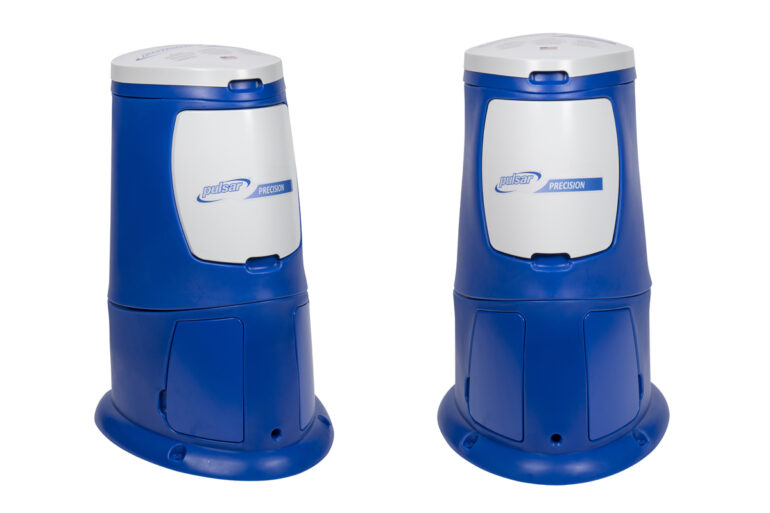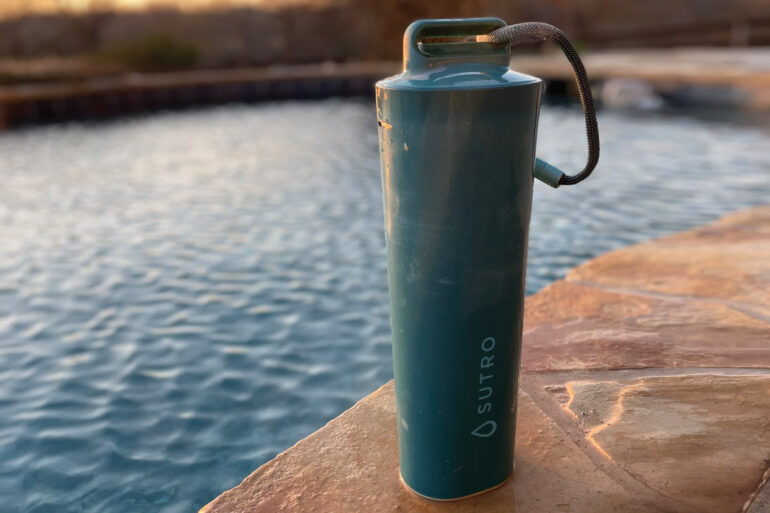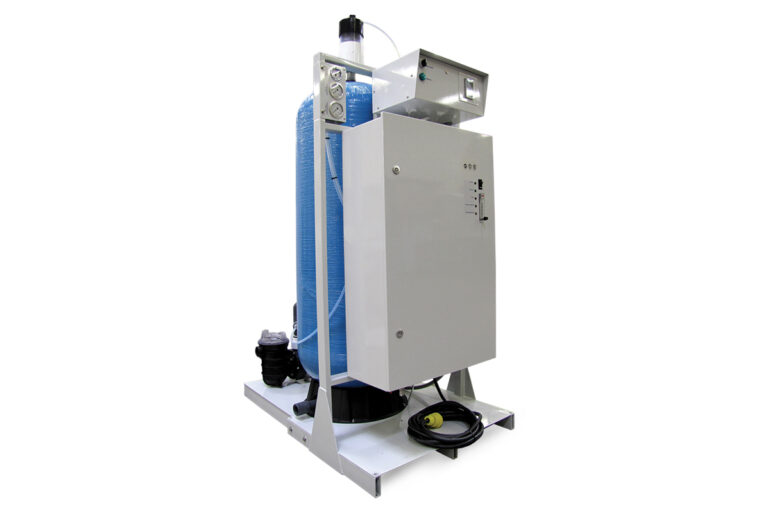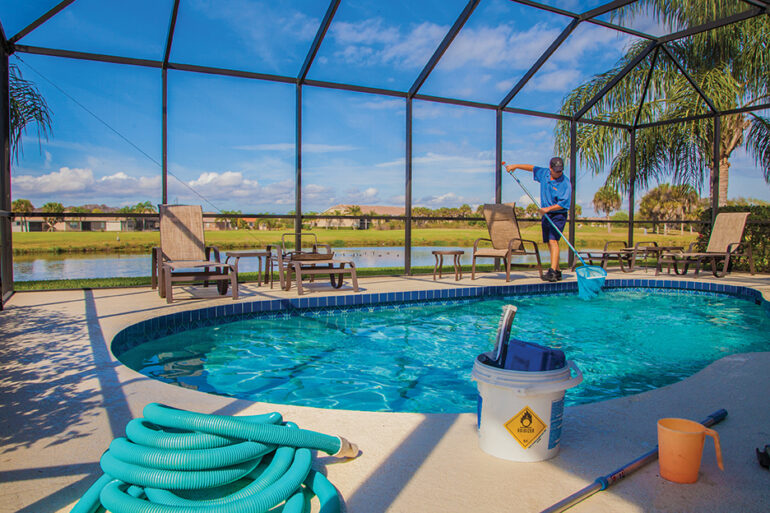Saltwater Salvation
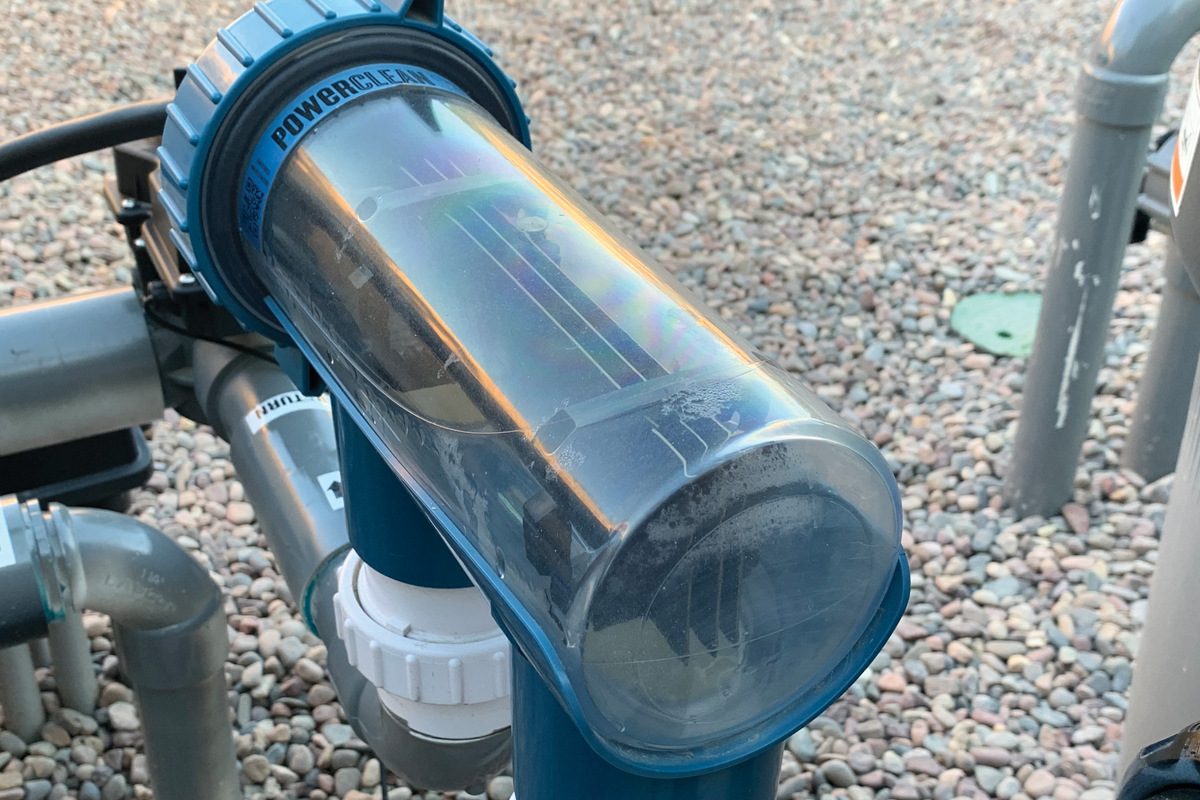
Due to unprecedented pool use, supply-chain issues and a major chlorine manufacturer’s fire, chlorine tablet availability remains limited this year. Stephen Boswell, marketing communication supervisor at CMP in Newnan, Georgia, says that from distributors, pool pros and in online forums, he is seeing increased interest in alternatives to traditional chlorine methods. Some are looking to saltwater systems and chlorine generators to fill the gap.
“The chatter from industry professionals is they are planning ahead for the shortage to last into this fall, so they are looking for long-term solutions, not just quick fixes,” Boswell says. “A switch to salt can be a permanent solution.”
It’s a switch that Vic Walker, director of product design and marketing at CMP, sees as an increasingly easy one for customers. “Chlorine generators are becoming more user-friendly for consumers,” Walker says. “Clear cell designs and products like Powerclean Salt from CMP that can be cleaned without acid are providing a better solution for people considering chlorine generators.”
While moving clients over to saltwater systems limits chlorine supply concerns, Terry Arko, product training and content manager for HASA Pool Inc., in Saugus, California, doubts it’s the best solution.
“It’s still a bit early to tell how this shift will go,” Arko says. “There are pool pros I know who are working on a broad switch of their accounts to salt chlorine generators. Many pool pros are going with salt because they have a unit at the pool that produces its own chlorine. That means ideally there can never be a shortage of supply and they can save trips to the distributor.” However, Arko says there are several cons: Among them, the importance of the unit being sized and installed properly, ensuring the ideal amount of salt is used to produce proper levels of chlorine. Others include the difficulties with salt’s corrosive nature, upfront costs of saltwater systems and the fact that some cities still don’t allow saltwater pools.
For the dealers Arko knows who have switched to saltwater systems, some are offering deferred payment schedules while others are providing discounts to help alleviate some of the financial burden on customers. He believes many dealers will use the slower months to switch people over.
For Beau DeRohan, owner of Great White Pool & Spa in Boise, Idaho, salt water may not be the way to go. With so many people making the switch, he worries that keeping generators in supply may also become a problem.
“I was pushing customers away from tabs before all this happened,” DeRohan says. “I understand they’re easy for a customer to use. You pop them in the pool. You set it; you forget it; you walk away. Then you find out what’s actually inside of some of those tabs, especially the cheaper ones. There are a lot better ways to add chlorine to your pool.”
While DeRohan sees the initial appeal of saltwater systems, he has concerns about the work involved. He believes there are more appealing and user-friendly options to consider such as liquid chlorine, UV and AOP. “With a lot of my regular maintenance customers,” he says, “we’ve moved toward a UV and liquid chlorine dispensing combination, and it seems to be working very well.”
DeRohan sees saltwater systems as expensive compared to the time they last before needing repair or replacement. “Everybody wants a saltwater pool because they’re uninformed and think they’re nonchlorine pools,” he says. “Then they freak out when it only lasts for four or five years.” Despite current frustrations, both Walker and Boswell see the tablet shortage as having a silver lining. Boswell says the growing attention to sanitizing in general during the pandemic has bolstered an awareness “that we can never do enough to keep the water safe and clean to swim in.” Walker adds: “It’s our job as manufacturers and leaders in the industry to educate everyone about these new technologies and products, and the benefits they provide to consumers.”

